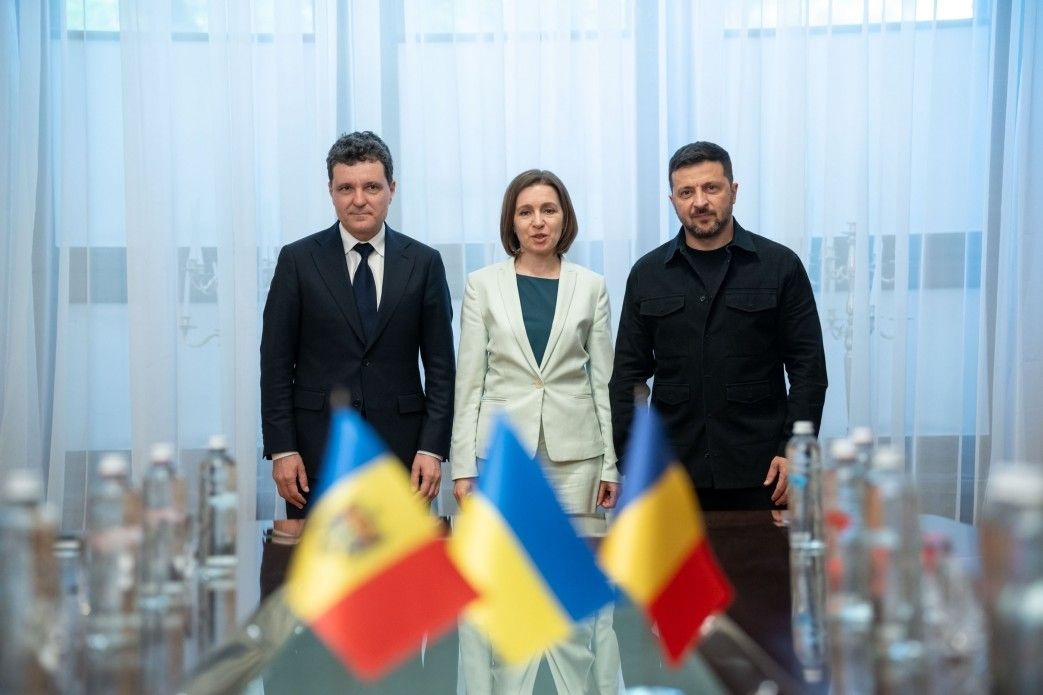Analysis: Ukraine support wavers — but Central Europe hasn't fallen to Russia

Andrej Babis, former Czech prime minister and leader of the Ano party, is seen at the party election headquarters after the Czech parliamentary elections in Prague, Czech Republic, on Oct. 4, 2025. (Tomas Tkacik / SOPA Images / LightRocket via Getty Images)
The past streak of elections in Central Europe cast a gloomy picture for Ukraine and its supporters.
The recent landslide win of populist billionaire Andrej Babis in the Czech elections sparked concerns that Prague might join Slovakia and Hungary in an "anti-Ukraine" bloc within the EU and NATO.
Coupled with the Polish presidential election, the trend is undeniable: the once-steadfast support for Kyiv in much of Central Europe is weakening.
But the conclusion — now often proclaimed by commentators on social media — that the former Warsaw Pact nations are drifting back toward Moscow is a misleading oversimplification at best.
Beyond the labels
In 2022, Hungary, under its illiberal strongman, Viktor Orban, was the sole Moscow-friendly voice within the EU and NATO as a whole.
A year later, left-wing nationalist Robert Fico brought Slovakia — the second country to donate fighter jets to Ukraine, as well as artillery, air defense, and more — into Orban's "mini-bloc."
This June, Karol Nawrocki won the Polish presidential elections, often invoking historical grievances with Ukraine and voicing opposition to its swift accession to the EU and NATO.
Nawrocki's victory reflected the shifting mood of the Polish population, where the views toward Ukraine — namely, Ukrainian refugees — are changing to a more critical one.

However, it would be wrong to picture Czech, Slovak, Hungarian, and Polish leadership as a unified force.
Despite all the mounting criticism of Ukraine, Nawrocki and his allies from the conservative Law and Justice (PiS) have been very clear — Russia remains a threat, and continued military support for Ukraine is necessary.
In Czechia, the picture is also complex.
An incoming Babis government, which will likely rely on the support of fringe Euroskeptic and nationalist parties — Freedom and Direct Democracy (SPD) and Motorists for Themselves — is a dire sign for Ukraine and for European unity.
The populist leader is now distancing himself from the Czech ammunition initiative for Kyiv and has declared that Ukraine is not ready to join the EU.
But, for all his criticism of the outgoing government's support for Ukraine and Ukrainian refugees, Babis can hardly be described as "pro-Russian." While often lambasting "Brussels bureaucrats," his Ano (Yes) party made it clear that Czechia belongs in NATO and the EU.
Experts talking to the Kyiv Independent also noted that Babis greatly benefits from Western structures, and his party lacks a clear foreign policy vision.
The radical anti-Ukraine voices that consistently echo Moscow's talking points have seriously underperformed. The far-right SPD won less than 8%, finishing in fifth place, while the communist-led Stacilo! (Enough!) bloc failed to enter the parliament.
In turn, the Euroskeptic and anti-environmentalist Motorist party — which criticized aid to Ukraine but nevertheless reaffirmed Czechia's place in the EU and NATO and labeled Russia as a threat — performed better than expected.
The next battlegrounds
Illiberal right-wing populism, often linked to opposition to aiding Ukraine, is clearly on the rise, not only in Central Europe but also in Germany, France, the U.K., and beyond.
Speaking to the Kyiv Independent in May, British historian Timothy Garton Ash noted that we are currently witnessing an "anti-liberal counter-revolution." But, he added, we also see "examples of successful liberal fightback."
Ash made the comments mere days before Romania's pro-EU presidential candidate, Nicusor Dan, snapped a surprise victory from hard-right Euroskeptic George Simion.

A few months later, Moldova reaffirmed its pro-European course by a clear defeat of pro-Russian parties in parliamentary elections.
In Hungary, surveys indicate that Orban's Fidesz party is trailing behind the new Tisza party led by Peter Magyar, suggesting that the prime minister may very well be ousted during the April 2026 elections.
The liberal Progressive Slovakia (PS) party is also leading in the polls over Fico's Smer (Direction), while Smer's coalition partners are hemorrhaging voters.
The fervor for helping Ukraine resist Russian aggression has cooled considerably since 2022. But it has not disappeared, and Moscow does not yet have Central Europe in its grasp.
Note from the author:
Hi, this is Martin Fornusek, the author of this article.
As a Czech reporter based in Ukraine, I have a close view of how political shifts in my home country and across Central Europe directly impact the fight against Russia.
While Russian influence and disinformation seek to sway global opinion, honest reporting on the war matters now more than ever.
Our work is only possible thanks to the support of readers like you. If you value independent journalism, please consider joining the Kyiv Independent's community.









